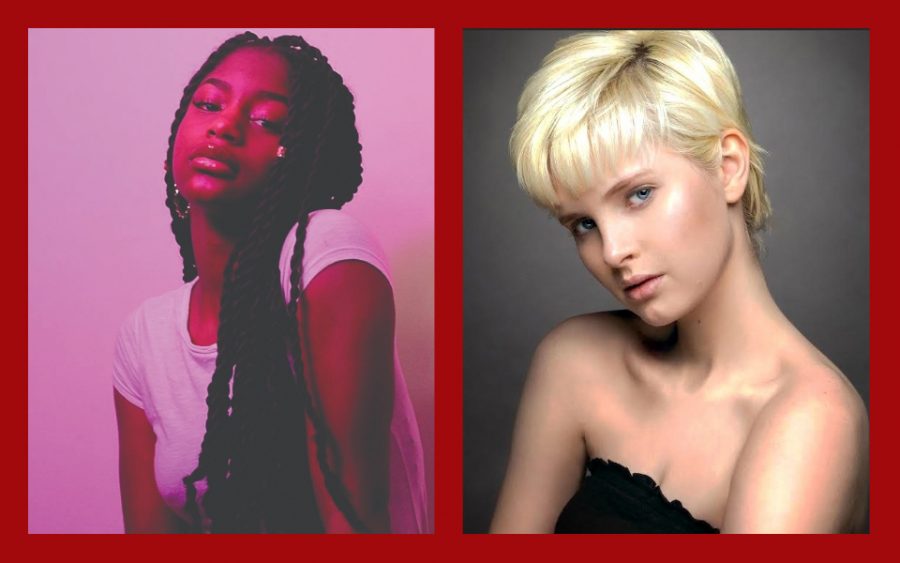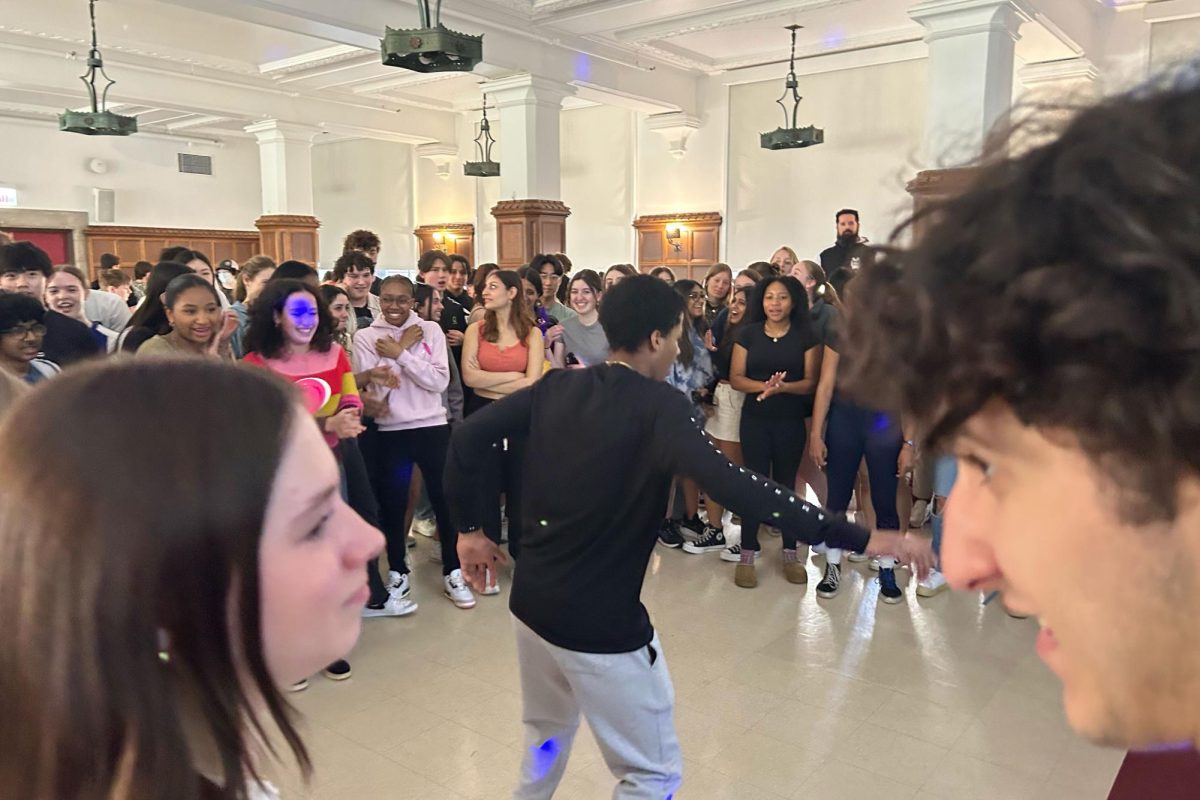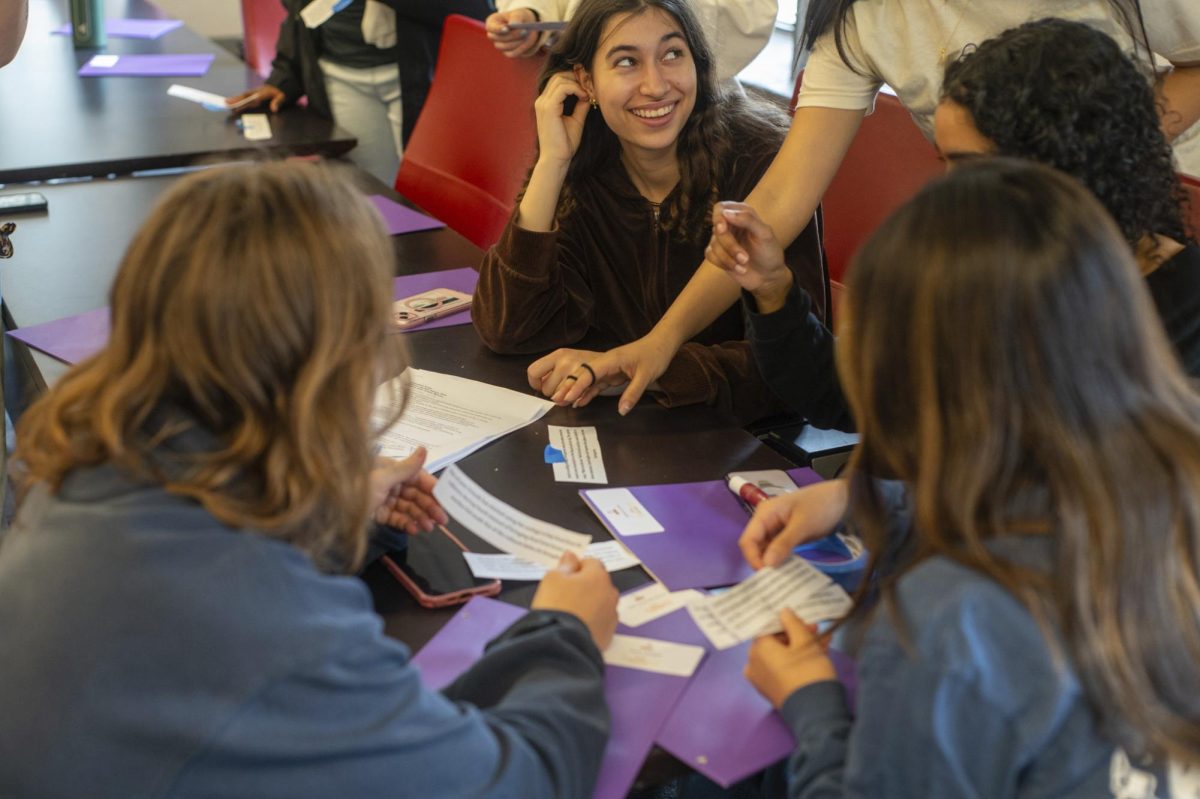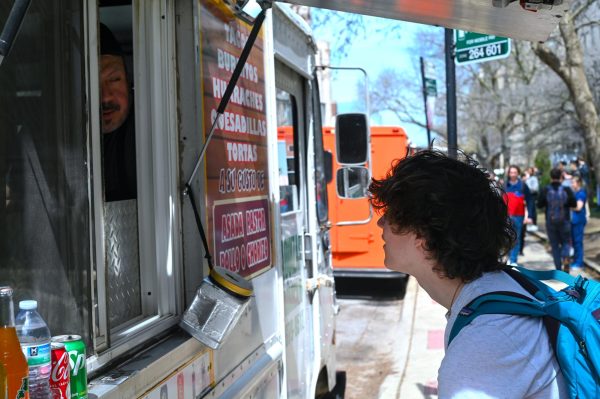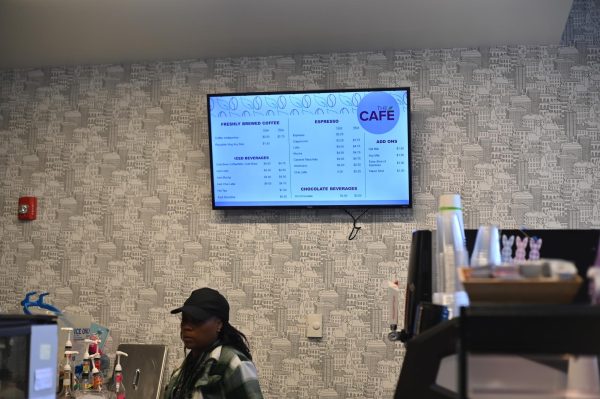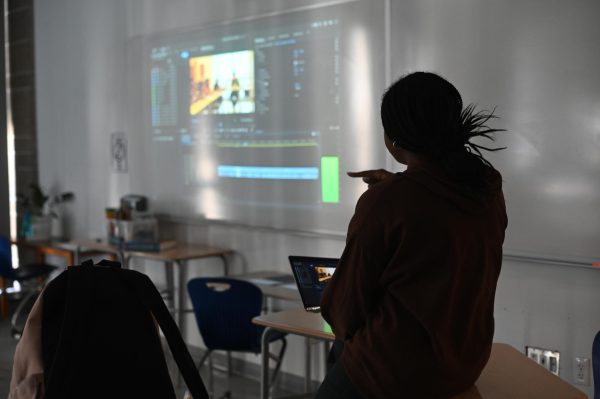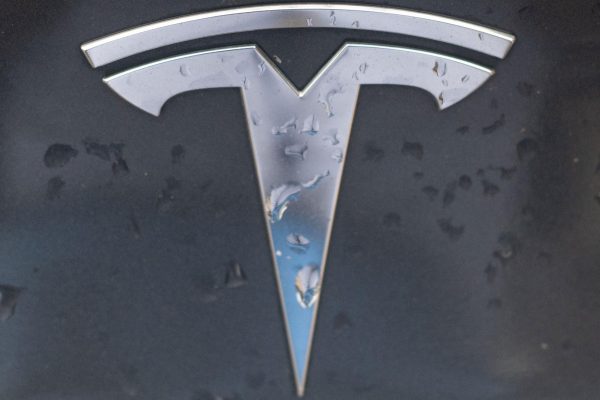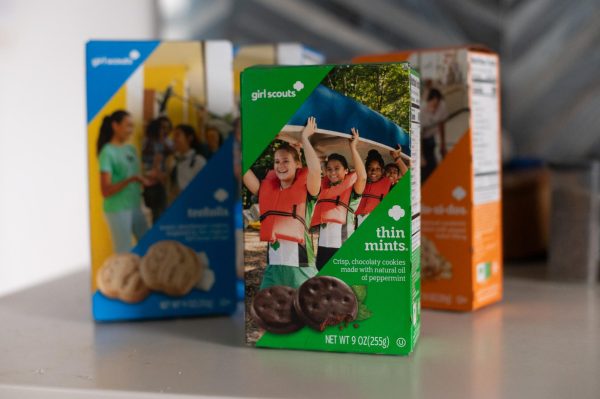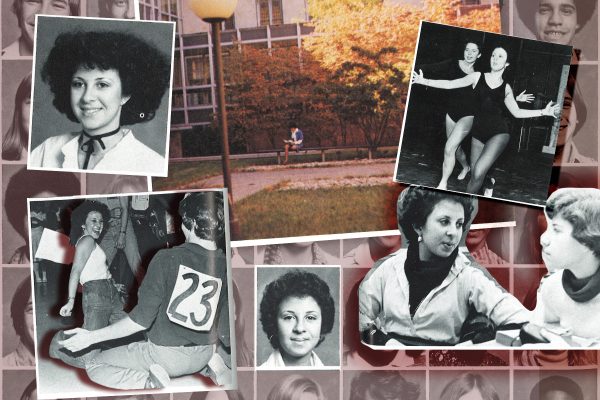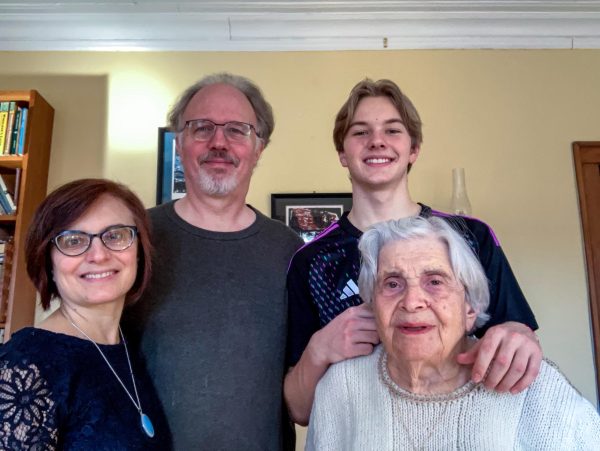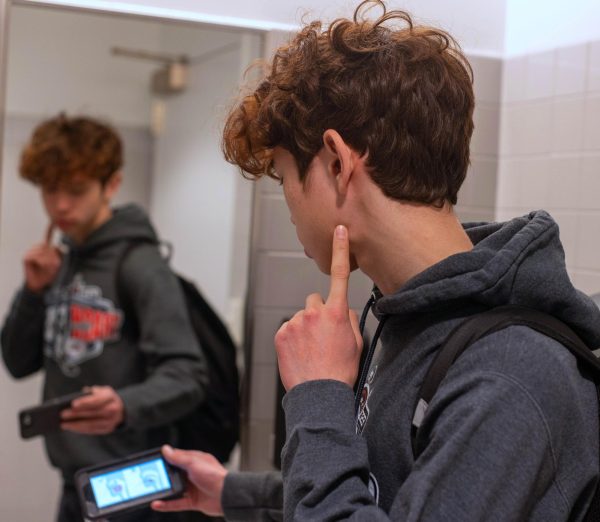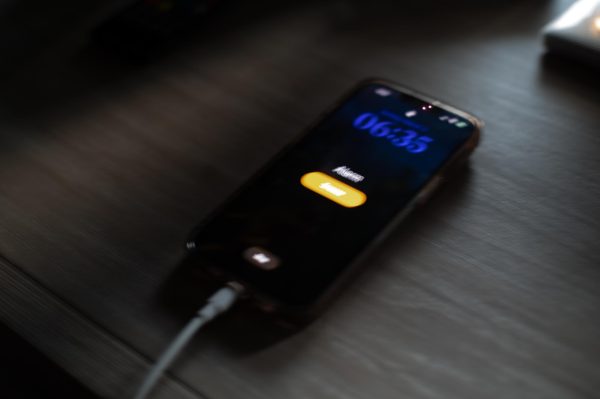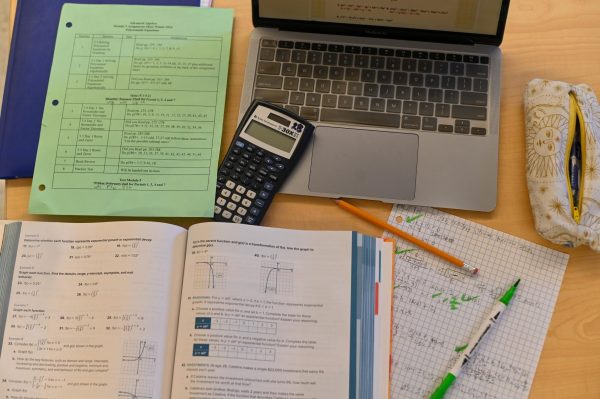A whole new angle: teen models take control of their image
Traditionally, signing with a modeling agency meant losing control over your own image. Nowadays, young models are starting to take that power back.
photos used with permission from Tracy Frugoli (right) and MN Gallery (left)
STRIKE A POSE. U-High sophomore Zuzana Jenkins (right) and Drayona Rollins, a senior at De La Salle Institute (left) have recently begun persuing professional modeling. Though, from the outside, the industry can appear problematic, they both say the modelling world is changing for the better, allowing for more diversity, individuality and freedom of expression.
November 5, 2019
At an age where self-image can be fragile, it’s hard to imagine being styled, posed and photographed by a team of near-strangers. For some people, the modeling world looks cutthroat and toxic.
But what is the industry really like for teenagers, and what does this visual curation mean for their self-perception? These high school models agree: it’s not what people see on “America’s Next Top Model.”
Zuzana Jenkins has pursued professional modeling since August. She said her mother, who also modeled, knew her daughter would follow in her footsteps — and after years of resisting, it happened.
“I guess I saw a closer look into the industry,” Zuzana, a U-High sophomore, said. “You know, from the outside it looks like pure competition, and once I saw this agency I realized that it wasmore of a ‘work together to bring each other to the top’ kind of thing.”
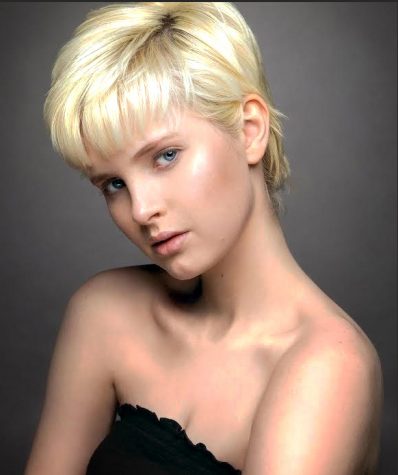
Zuzana said her agency has unexpectedly provided her with an affirming experience. While bigger agencies can be more intense, she said, it’s best for aspiring models to start small, especially if they’re dealing with insecurities.
“I originally thought that it was going to give me horrific body issues. I realized that actually, instead, it was validating. In the agency I work for, there is no ‘cut your hair this way. Do your makeup this way.’ It’s a much more personal, much more healing experience,” she said.
Drayona Rollins, a senior at De La Salle Institute, agrees.
“Honestly, I think modeling and taking pictures for fun has helped strengthen my self-perception because it helps me gain more confidence in my appearance and understand what works for my body,” she said.
Drayona has not yet signed with an agency because of her other commitments, but she models for up-and-coming businesses and beauticians.
Part of Drayona’s motivation, she said, is becoming more secure in her uniqueness and self expression.
“I would say the healthiest way to enter the modeling industry is by branding yourself in a way that truly shows your individuality,” she said.
Zuzana said that when she models, it feels freeing to be transformed and return to herself again.
“I walk into a photoshoot thinking that I’m going to be looked at and stared at by everybody, and people don’t care. I am a canvas. As dehumanizing as it sounds, it’s actually very comforting,” she said. “I’m more comfortable being faced by 10 cameras than I am being faced by 10 students, because I know the cameras aren’t going to hear my opinions, or how I’m doing in class. High school is much harsher.”
Drayona said she feels comfortable as an African American girl, too, especially as the industry has progressed beyond solely Eurocentric standards.
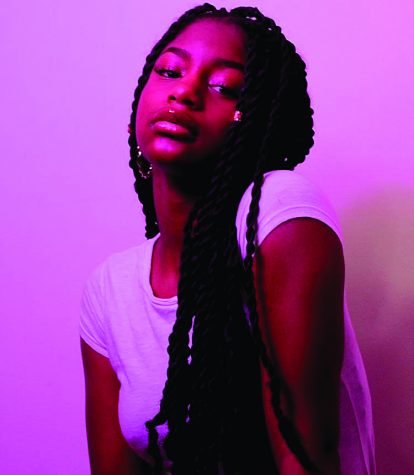
“Today in our commercial world, diversity has become a very important key that companies want to display,” she said. “Every person who enters the modeling industry will face obstacles at some point in time — it is all about how we can overcome these obstacles and change things for the better.”
Zuzana also encouraged anyone interested to try out modeling, because representation outside of the tall, white, thin stereotype would be positive.
“Everybody else has been told that they shouldn’t even apply,” she said. “And if those people did, the industry would actually change.”
While Zuzana said her self-confidence hasn’t changed drastically since modeling, her outlook has.
“It made me consider myself in different lights, but none of them are necessarily good or bad,” she said. “It just gave me an outsider’s perspective. You know, if I was looking at this as someone who didn’t know me, what would I think? It provides us a way to learn, change and grow.”




